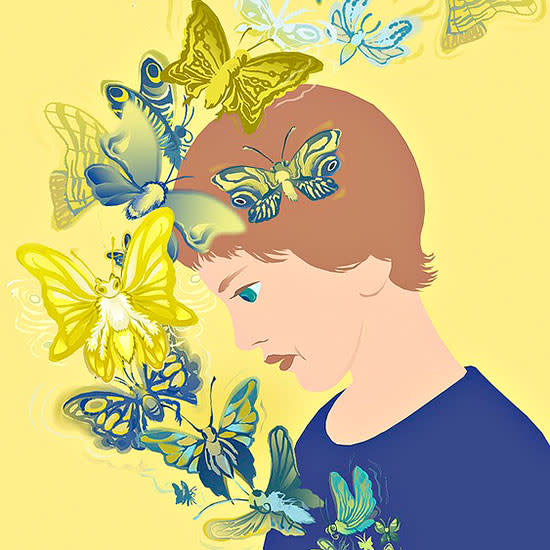How to Tell Kids About Autism

The family: Sheena Edwards, daughter Monroe, and son Emir, of Reading, PA
My daughter, Monroe, was diagnosed with autism at the age of 2. She was nonverbal, so for a long time we communicated with pictures. Then at the age of 4, she began talking—in full sentences. One day she just said, “I want to watch Frozen,” and after that, she was able to have complete conversations. She repeats herself and talks in scripts sometimes, but we also have good, even intense, conversations together.
Once Monroe could speak, she wanted to make friends, but kids weren’t receptive to her. She didn’t have the same energy they did. She didn’t know how to play with them. And there were other more obvious differences. For example, she walked around with a stick that she liked to use when she stimmed—self-stimulated—and she drank fruits and vegetables in liquid form from a baby bottle because the texture of these foods bothered her. Kids her age were confused by these things. It wasn’t their fault.
RELATED: How to Handle Your Child's Autism Diagnosis
From the time she was diagnosed, I had been very overprotective of her. I had to walk around explaining my daughter to everyone because she couldn’t talk. I am a single mom and have always been involved in the autism community. We went to autism marches, and I was open with others about her diagnosis.
But as she started to notice that she was different, I knew I had to explain Monroe to Monroe. I wanted her to start advocating for herself. It’s difficult to come to the realization that you aren’t always going to be there to protect your child. When other kids didn’t want to play with her, and I couldn’t help her—well, anxiety doesn’t begin to describe it. For a while I could say, “It’s okay, you and I can play,” but I couldn’t say that forever. I needed to prepare her to take care of herself. That was what fueled me to have the conversation when she was 5.
It happened one day in the car, after we had been at the park. She was crying because, once again, no one would play with her. I decided that I could either let her sit and cry and feel terrible, or I could tell her why this was happening. So I asked her, “Pop”—like popcorn, that’s what I call her—“do you know what autism is?” She responded, “Is that the puzzle piece?”
RELATED: The ABCs of Autism
She knew the Autism Speaks logo from all those marches. I told her, “It’s not the piece itself—that’s a symbol. Autism is this extra-special thing you have that makes you different from other kids.” Monroe stopped crying and became curious: “Is autism why I don’t have friends?” I told her that I was her best friend, and she seemed to accept that answer.
After a while, the autism diagnosis clarified many things for Monroe: why she needs to wear headphones to block out noise, why she only wants to eat french fries, why she repeats the same things over and over, why she doesn’t always understand when people ask her to do certain things. We even wrote a book together called Get to Know Monroe that talks about the quirks that make her so special. She likes to share the story with her classmates, and I still whip it out all the time to explain my little princess to new people.
Today, Monroe is 7 and learning how to advocate for herself. She tells people, “I’m sorry, I don’t understand what you just asked. I have autism.” Sometimes this even helps other kids engage with her because it sparks their curiosity. I’m not one to sugarcoat things, so I want Monroe to know: No, you’re not like everybody else. You are different. And that’s okay.
But I also hope for empathy. Not sympathy, but empathy—for people to make an effort to understand Monroe

